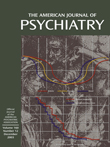In the early 1980s, large numbers of Hmong peasants fled war and oppression in Southeast Asia and came to the United States, setting off a flood of xenophobia matched in intensity only by the Hmong lack of interest in assimilating into American culture. Anne Fadiman, editor of American Scholar magazine, has written an insightful account of these intercultural tensions in Merced, Calif., where, because they arrived within a relatively brief period of time and in such numbers, the Hmong came quickly to make up 20% of the city’s population and 79% of its welfare rolls. Intensely researched and eloquently written, The Spirit Catches You and You Fall Down weaves sociology, history, medicine, and psychology into a tapestry that permanently raises the bar in literary journalism. It might be the first time a book focusing on transcultural health care made it onto the New York Times best-seller list.
In the larger community, the clash was about money and community services strangled by welfare costs. In the medical community, however, the clash was about opposing belief systems righteously dismissive of each other. The doctors were concerned with saving lives; the Hmong with saving souls. Fadiman, in a single case study, traces how misunderstanding can degenerate into paranoia. Although Western medicine has long given lip service to treating the “whole patient,” in practice patient care is generally compartmentalized into isolated subspecialties. For the Hmong, however, subspecialties are fictitious. Their cosmology, which has served as a guiding cohesive force for several centuries, rests on the assumption that all life is interconnected—virtue and vice, good luck and bad, health and illness. Each individual’s soul is in constant danger of being compromised by dabs, opportunistic spirit thieves who rob life of its value, opposed by tvix neebs, shamans experienced in spirit rescue. Medical commonplaces such as blood tests, surgery, and anesthesia trespass sacred Hmong taboos, and disrespect of those taboos is both offensive and dangerous. Most Hmong come to an American doctor only as a last resort and with little tolerance for medical failure.
Lia Lee, who “fell down because her spirit had been caught,” was diagnosed with epilepsy when she was 3 months old, and in the ensuing 4 years she was seen in the emergency room more than 100 times. Her 14-lb medical record documented that her parents were incompletely cooperative with medical efforts, relying additionally on the ceremonies of tvix neebs. Neil Ernst and Peggy Philps, emergency room physicians who came to care very deeply about Lia, became so frustrated with her parents that they invoked Child Protective Services to remove Lia from her family for 10 months. It didn’t help, and soon thereafter Lia had a prolonged seizure that caused serious brain damage but, ironically, cured her epilepsy. Lia’s parents could only attribute ill will to the physicians and the social service agency that forcibly removed Lia from her home and blame them for the ensuing clinical outcome.
In time it became apparent that most of the people in the Hmong community were at odds with the medical establishment, and this created a serious public health hazard costing money and endangering lives. In fact, when this cultural divide over health care finally attracted the attention it deserved, it was discovered that almost none of the medical interventions with the Hmong took place in the presence of an interpreter. In all the times they met with the Lees, Drs. Ernst and Philps never sought to discern the reasons for their uncooperativeness. They were as blind to the uses of a tvix neeb as the Lees were to the values of a blood test.
In the mid-1980s, a few enlightened community leaders, noting that interventions of tvix neebs were essentially harmless, obtained a federal grant to study what happened if they were included on the health care team. The response was dramatically positive and continues to bear fruit. Some basic principles of ethnic conflict resolution have evolved and are well articulated in this book by Harvard psychiatrist Arthur Kleinman. His major point is that the demand for compliance by physicians implies a moral hegemony that precludes the colloquy essential to successful mediation. Doctors are commonly blind to their own biases, and the exclusivity of their beliefs is often laced with arrogance. The acknowledgment of these limitations is essential to opening the door on respect and the understanding of other cultures.
The clash of cultures strange and hostile to one another, focused so sharply in the Lees’s encounter with the medical establishment, is of concern to us all in this post-9/11 moment in history, when our known universe appears in grave danger of being torn asunder by ethnic tensions. In telling this story so well, Ms. Fadiman has brought forth a work as potentially useful as it is engaging. Whether it might have made a difference in Lia’s treatment is moot, but the book has found its way onto the reading lists of several medical schools, and one hopes that presidents and generals might discover it too.

